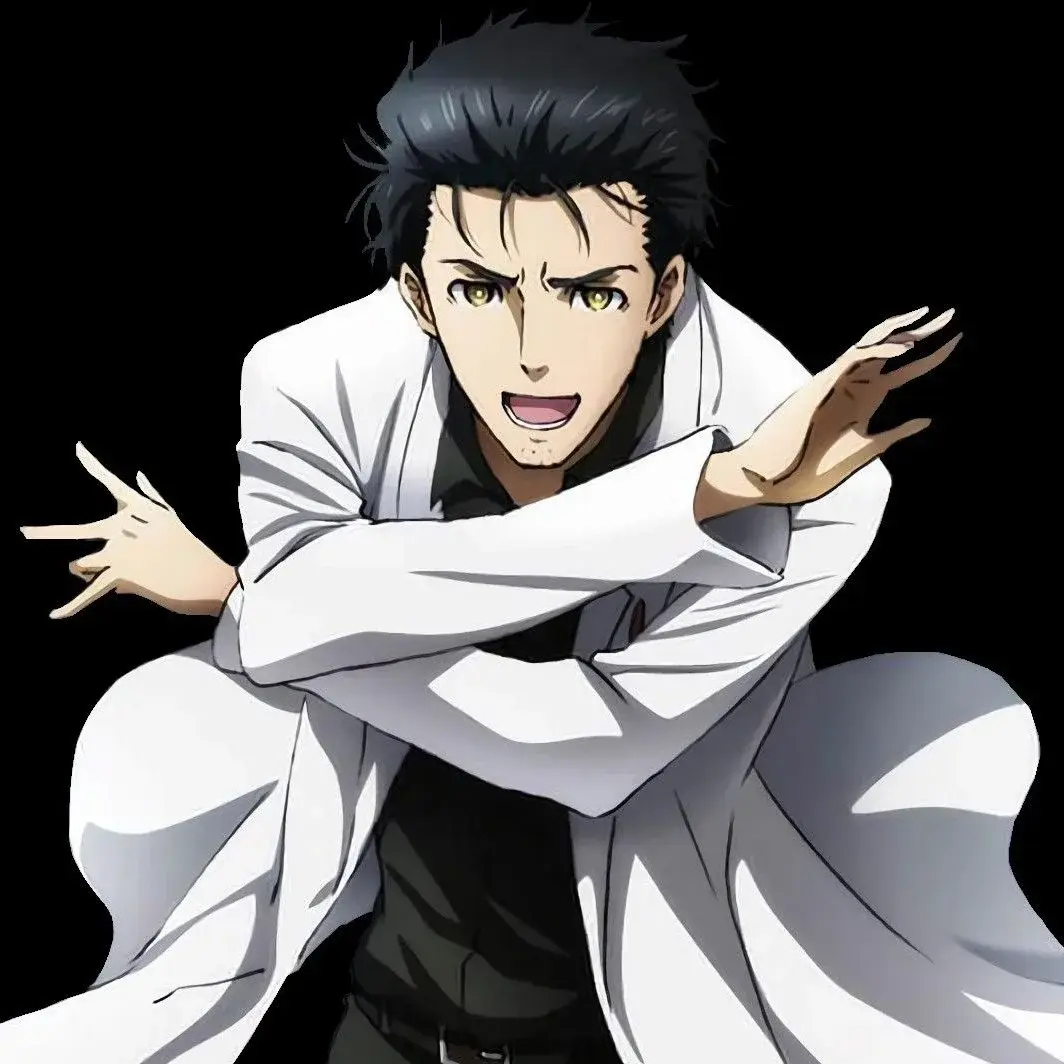I had a day off on Monday so my wetware got confused and thought it’s only Tuesday. That’s why I don’t have anything prepared for the Midweek-Discussion. I call a lazy day and just ask y’all what your favorite “normie book” is. We’ve seen a few already on April 1st but where they your favorite?
I would start with my favorite but I cannot in good conscience tell you about it because it will never get to the last book in the trilogy and letting readers hang is probably somewhere listed in the Geneva Conventions as a war crime. It’s been over a decade and I still made myself depressed again just thinking about it right now, so go on and tell me about your favorites to cheer me up.
Outside the Light novels i don’t read that much.
From my middle school days it would be discworld series by terry prachett
And more recent one:
https://openstax.org/details/books/university-physics-volume-1
As is on CC-BY licenceFrom my middle school days it would be discworld series by terry prachett
Remind me, did you read Tearmoon Empire? I often thought that the first volumes had often a very Pratchett-esque wit.
I wonder though if University Physics has the same way with words… ;)
Yes, I did.
It would be certainly an adventure to read discworld in English instead of my native language.
Looking through that table of contents, that textbook covers a lot of ground. When I did undergrad, waves and oscillations were kept out of the intro course and held back until the second year Mechanics course (iirc, I don’t have my first-year textbook any longer). This was mainly because they are easier to work with mathematically if you are already familiar with differential equations. Looking briefly at the damped oscillations chapter (15.6), they get around not learning differential equations by simply presenting a solution (eg 15.28) and having the reader verify that it works.
Are you pursuing physics? As somebody with a Physics PhD, I rarely come across others in the field (I now work in pharma, so mainly deal with biochem and chemical engineers).
Sadly or gladly I dropped out depending on the viewpoint.
The professor sometimes got different flow of topics depending on the demand. The three volumes would be covered in my would be engineering degree.
I have a few I like to talk about with these sorts of questions.
- Macbeth: I’ve read this a fair number of times and every time I’m enthralled, I get chills, I want to cheer as Macduff walks in holding Macbeth’s head at the end. It’s chock full of everything English class tells people to look for in literature, except it’s a thrilling read to boot. I want to see it performed so badly. It’s probably the best thing I’ve ever read and the only downside is that it’s actually a play.
- 2666 by Roberto Bolano: This is one of those books where there are so many layers to peel back that, as I read it, I spent a lot of time thinking deeply about what Bolano was trying to communicate and how the disparate storylines connected and what that all meant to me. It’s such a sprawling narrative that it’s hard to even describe what it is, except that it’s vaguely about a reclusive author and a series of murders in a Mexican city. It hits on so many things that it’s hard to even know what to say about it other than it’s incredible.
- And as a maybe more normal recommendation for this community: The Malazan Book of the Fallen is far and away my favourite fantasy series. Incredible worldbuilding, so many fun and interesting characters, plots that coalesce into absolutely wild climaxes, and underlying themes that provide a bit of hope even in the face of a grim world and plot. Absolutely fantastic series.
I was thinking of re-reading Edding’s Belgariad and Mallorean Saga one of these days but I might check out that Malazan Book of the Fallen saga if it comes so highly recommended.
It can be rough to get into (Erikson was very much sorting out his writing style for the first couple of books and it just dumps you right into a complex intercontinental conflict with no context) but it’s widely recommended as one of the best epic fantasy series for good reason. If you put in the effort it pays off beautifully.
Is it the type of series that needs several books to hook you or is the first volume already sufficient?
People can be a bit mixed on Gardens of the Moon because it’s dense and confusing, but generally once you wrap your head around it it’s very good. I appreciated it a lot more after a reread.
Deadhouse Gates is fantastic, although I find the start pretty slow. From Memories of Ice onwards every book is just great from start to finish.
Titus Groan by Mervyn Peake.
It’s the first in a sort of trilogy called Gormenghast, after the enormous, crumbling, sprawling castle in and around which the story takes place. It and the second book - also called Gormenghast - tell a complete story, but it also stands alone. The third book - Titus Alone - changes the setting and supporting characters entirely, and was left unfinished at Peake’s death.
Peake was quite simply one of the most talented prose stylists ever. And he created a setting and characters that are so bizarre that they couldn’t possibly actually exist, then breathed them so full of so much richly detailed life that it seems as if they not only can exist, but do.
Maybe because it is fresh on my mind after a recent discussion, sci-fi series have been on my mind lately. When I was in grad school, I used to spend a lot of time waiting for and then sitting on trains. So, I read a lot during that time, and started working my way through the list of Hugo Award winners and Best Sci-Fi book lists. These are a couple that have stuck with me:
- Book of the New Sun - This is the series that was brought up by @Rottcodd@ani.social and sparked my thinking about other sci-fi series. I think it is fantastic; full of imagery, allegory, and symbolism. It isn’t for everybody though. My wife has a Master’s in English Literature and dropped it halfway through the first book because she didn’t like the main character. ¯\_(ツ)_/¯
- Foundation - This series is basically the culmination of Asimov’s work. The ending is a bit meh imo, but the millennia-long journey is what makes this so fun. Also, this series provides the template for how to do a character like Jar Jar Binks the right way.
- The Forever War - This is a series that I have thought a lot about over the years since I read it. Written by a Vietnam vet, it depicts life from the POV of a soldier in a future human army fighting against an alien species. FTL travel is possible, but time dilation still occurs, so for each battle the MC takes part in, decades pass by back home on Earth. Overall, a thought-provoking depiction on military life and how the soldiers lose their humanity as they are part of the larger military machine. Written as a sort of response to the earlier Starship Troopers.
- A Fire Upon the Deep - A sci-fi series that features lots of speculative physics. I personally found it fascinating reading while I was attending grad school for physics. The author, Vernor Vinge, was both a computer science professor and five-time Hugo Award winner. The series deals a lot with AI, but leaning pretty heavily on the fiction part of sci-fi when doing so. Basic premise would be that some extremely dangerous super powerful AI has awakened and is trying to break its containment to conquer all the other, not-evil AI beings. Due to setting reasons, lower, biological lifeforms need to be the ones to go on the journey through the galaxy to take care of it. A lot of fun with twists and turns along the way.
- The Handmaid’s Tale - Not really sci-fi in the same sense as the others, but been on my mind a lot due to the recent politics around abortion and contraception in my country (the US).
- Hyperion - I view this series like a sci-fi version of The Canterbury Tales. A group of people are traveling to a planet to find a legendary creature living there called the Shrike. Each traveler has their own reasons to be there and stories to tell.
My wife has a Master’s in English Literature and dropped it halfway through the first book because she didn’t like the main character.
That’s a shame, but I find it’s not uncommon.
It’s part of Wolfe’s genius. The Severian depicted in the story really is fairly unlikeable, but the thing is that the Severian depicted in the story isn’t the actual protagonist. The actual protagonist - the actual character we’re meant to come to understand through the course of the story - is the much later Severian who has written a memoir in which he purports to tell the story of his life. The Severian of the story is, to some significant degree, a fiction created by that Severian.
We’re supposed to notice that that Severian is unlikeable, because that contrasts with the tone of the story, in which Severian is presented as if he’s somehow both simple and noble - a bit of a naif cast out into the world who always tries to do the right thing. But the reality is that he’s neither of those things - he’s more of a self-serving and callow asshole. Severian the memoirist is trying to hide that and present himself as this simple, noble man striding forth into the world, but he can’t quite pull it off, and bits of his real character slip through.
The Forever War
I was kind of disappointed by this one. I think the problem was that Haldeman was too close to the subject matter, as a vet, so his focus was on a few specific things - the sense of meaninglessness of the war, and the sense of alienation a soldier experiences on coming home, since life has kept going in his absence. Both of those things were amplified by the enormity of the timescale, so it did work to make the points he appeared to be trying to make, but then that was about it. I think I was expecting some broader analysis of time dilation on that scale, and it just wasn’t there.
A Fire Upon the Deep
I loved this. It’s right in my wheelhouse - a fascinating story told by a notably talented writer. Vinge had a great gift for prose, and focused on interesting topics - sort of a somewhat less challenging Greg Egan.
The Handmaid’s Tale
I’m sort of ambivalent about this one. It’s a good story well told, but it’s a bit too heavy-handedly allegorical. It’s not so much that that hurts it in and of itself - for its time, it was a much-needed slap in the face. But it spawned a whole generation of heavy-handed allegorical social commentary that’s grown increasingly shallow and obvious and tedious. Allegory is fine all in all, and has long been part of the point of science fiction, but to be really enjoyable and effective, it needs to sort of sneak through and nudge readers - not leap out and beat them over the head. The Handmaid’s Tale isn’t too far gone to the beat you over the head form of it, but many of its imitators definitely are. And I know it’s unfair to judge a book in part by the imitators it spawned, but still, that interfered with my enjoyment of it.
Hyperion
This is definitely in at least my top ten. It’s just so well written - a great story pieced together from a set of smaller stories, each one of which stands well on its own (though some notably better than others) and all of which come together for a much greater whole.
And it’s just stuffed full of neat little touches - AIs speaking in Zen koans, portal technology so common that “houses” are built out of interconnected rooms spread between different planets, a forest of trees that have harnessed lightning as part of their life cycle, a self-unaware god who’s lost in time (and it’s not an accident that when we first encounter Yuki in Suzumiya Haruhi no Yuuutsu, she’s reading Hyperion).
If you haven’t read it, I strongly recommend The Uplift Trilogy by David Brin. It’s right in line with this list.
I was never a reader until I got into Light Novels a few years ago.
But if you include audiobooks:
H G Wells (First men in the moon , The Time Machine)
H P Lovecraft
P G Woodhouse (The Inevitable Jeeves)
Big fan of The Time Machine. I originally listened to the story as well, but it was a radio drama adaptation rather than an audiobook. It was a while ago, but I think it was by BBC radio.





